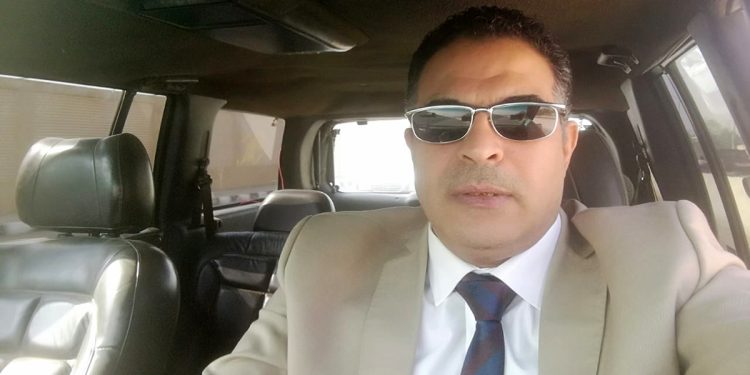Egypt’s Supreme State Security Prosecution ordered, on Wednesday evening, the detention of Osama El-Sheshtawy, a prominent cassation lawyer and former candidate for the head of the Bar Association, for 15 days pending investigation. He is being accused of “joining a terrorist group” and “spreading false news,” a charge frequently levelled by Egyptian authorities against dissenting voices as a means of repression.
The decision followed an official complaint filed by El-Sheshtawy to the Public Prosecutor, in which he stated that unknown individuals had been monitoring him near his home in New Nozha, East Cairo. Neighbours reportedly told him that some of these individuals were carrying his photograph and asking about his whereabouts over several days.
In his handwritten complaint, El-Sheshtawy wrote that his life was “in imminent danger,” holding the authorities fully responsible for any potential harm.
Two days after submitting the report, El-Sheshtawy disappeared under mysterious circumstances, only to later reappear before the Supreme State Security Prosecution. There was no official announcement regarding his place of detention or the specific charges against him.
El-Sheshtawy is a well-known figure in Egypt’s legal community, especially in cassation law, and had previously run for the top position in the Egyptian Bar Association. He is also known for his vocal criticism of restrictions on professional freedoms within the legal profession.
A number of Egyptian lawyers submitted urgent complaints following his disappearance, calling on authorities to disclose his whereabouts and allow him access to his family and legal representation.
El-Sheshtawy’s case highlights the broader trend of escalating pressure on lawyers in Egypt under the guise of counterterrorism and misinformation laws. These legal instruments have increasingly been used in recent years to restrict human rights work and target lawyers involved in politically sensitive or security-related cases.
In recent years, the number of lawyers arrested for their professional activities or public statements has steadily increased, with many held in prolonged pretrial detention and denied fundamental legal safeguards. These developments point to a growing crackdown on legal and human rights work, undermining the traditional role of lawyers as guardians of justice and the rule of law.
This case brings renewed attention to the safety of human rights defenders in Egypt, especially lawyers working on enforced disappearance and arbitrary detention cases. Many now fear that legal work itself has become a personal risk in an environment where legal and professional protections are rapidly eroding.


























